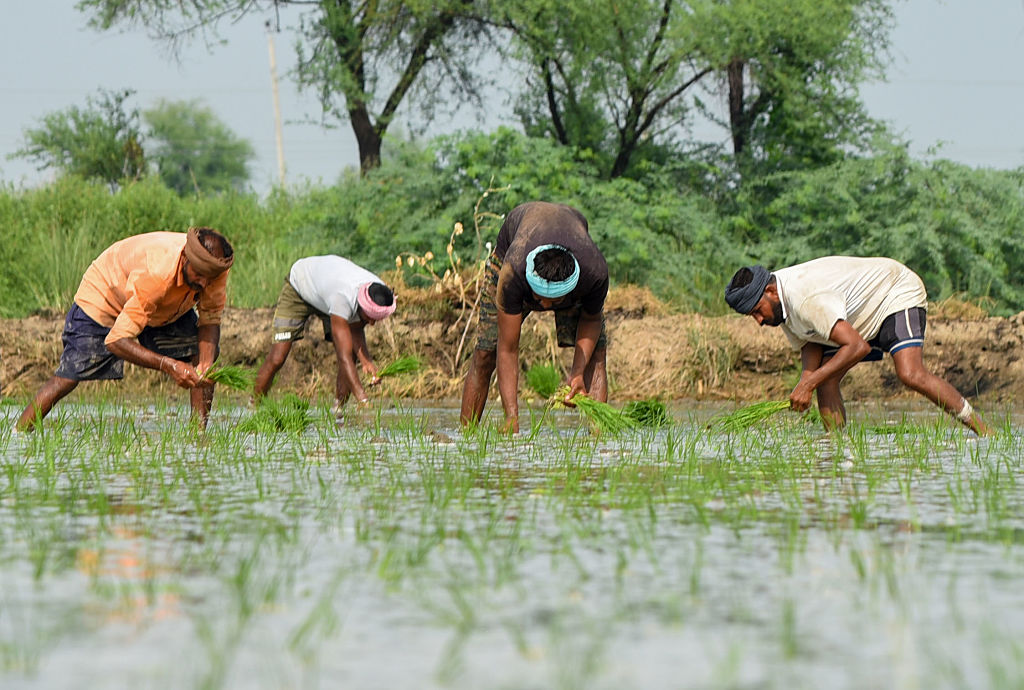In the heart of Kidigam in Gajapati District of Odisha, the “Sri Maa Majji Gouri” Cashew Industry stands as a powerful visionary entrepreneurship.
Established in 2022, this enterprise was born out of a bold vision—to create a primary cashew processing unit that would generate local employment and provide market stability to farmers. With a total project cost of ₹57 lakh, the promoters secured a loan of ₹42.75 lakh from UCO Bank at a highly subsidised interest rate of 5.5% per annum, made possible through the Agriculture Infrastructure Fund (AIF).
Backed by this timely and affordable financing, the unit today offers direct employment to 20 individuals and supports 40 local farmers, who now benefit from assured procurement of their produce. With an expected annual revenue of ₹2.48 crore, the enterprise is not just a source of income—it is a cornerstone of community development and agricultural progress.
This story reflects the broader impact and intent of the Agriculture Infrastructure Fund (AIF), a scheme launched in 2020–21 to strengthen post-harvest and farm-gate infrastructure. AIF aims to boost farmer income through value addition and efficient logistics.
AIF was launched to strengthen agricultural infrastructure across India. It is a medium-long-term debt financing facility through interest subvention and credit guarantee support on loans for investment in viable projects for post-harvest management infrastructure and viable farming assets.
The scheme focuses on the creation of farm-gate storage and logistics facilities to help farmers store their produce effectively and sell it at better prices by minimising post-harvest losses and reducing dependence on intermediaries.
Infrastructure such as warehouses, cold storage, sorting and grading units, and ripening chambers enhances farmers’ ability to access wider markets and improve value realisation, thereby boosting their income. Designed to benefit all stakeholders—including farmers, agri-entrepreneurs, cooperatives, and consumers—the scheme aims at the holistic development of the agriculture sector.
Under AIF, a loan provision of ₹1 lakh crore has been made through lending institutions, with a capped interest rate of 9% on loans. As of June 30, 2025, a total of ₹66,310 crore has been sanctioned under the Agriculture Infrastructure Fund (AIF) for 1,13,419 projects across India.
Key initiatives for boosting agri infrastructure
Several targeted schemes have been launched to develop and modernise agricultural infrastructure, reduce post-harvest losses, improve value addition, and enhance farmer incomes.
Integrated Cold Chain, Food Processing and Preservation Infrastructure Scheme
The Ministry of Food Processing Industries (MoFPI) implements the Integrated Cold Chain, Food Processing and Preservation Infrastructure Scheme, a key component of the Pradhan Mantri Kisan Sampada Yojana (PMKSY). The scheme aims to reduce post-harvest losses of both horticultural and non-horticultural produce, while ensuring remunerative prices for farmers by improving storage, transportation, and processing infrastructure.
This initiative plays a crucial role in building efficient farm-to-market linkages and reducing wastage in the Agri-value chain.
Capital Investment Subsidy for Modernisation of Cold Storages and Storages for Horticulture Products
The scheme aims to strengthen the cold chain infrastructure for horticultural produce by offering credit-linked back-ended subsidies. The scheme plays a vital role in reducing post-harvest losses, maintaining the quality of perishable produce, and improving shelf life and marketability of horticultural products.
Agricultural Marketing Infrastructure (AMI)
The Agricultural Marketing Infrastructure (AMI) scheme is a key component of the Integrated Scheme for Agricultural Marketing (ISAM). The AMI scheme aims to strengthen agricultural marketing infrastructure across rural India by providing financial assistance for the construction and renovation of godowns and warehouses.
As of June 30, 2025, a total of 49,796 storage infrastructure projects have been sanctioned across 27 states in India.
Mission for Integrated Development of Horticulture (MIDH)
Under this MIDH Mission, financial assistance is provided for setting up post-harvest infrastructure like pack houses, cold storages, refrigerated transport, and processing units. Support for food processing units is specifically extended to the North Eastern and Himalayan States.
Mission Organic Value Chain Development for North Eastern Region (MOVCDNER)
MOVCDNER, launched in 2015–16 with an initial outlay of 400 crore, aims to promote certified organic farming across the North-Eastern states. The scheme aims to establish certified organic production clusters across the North Eastern Region of India, focusing on creating a comprehensive value chain from inputs to consumer markets and boosting exports.
Digital Public Infrastructure (DPI)
DPI is a transformative initiative with the goal of establishing a unified digital ecosystem for the agricultural sector. By integrating data on land records, crop patterns, and farmer profiles, the DPI will support targeted interventions, improve transparency, and drive efficiency across the Agri-value chain.
Pradhan Mantri Matsya Sampada Yojana (PMMSY)
The scheme had launched in 2020, is a flagship scheme aimed at addressing key challenges in fish production, post-harvest infrastructure, and overall development of the fisheries sector.
National Agriculture Market (e-NAM)
It is a virtual platform that integrates the physical wholesale mandis/markets across different States and Union Territories (UTs) to facilitate online trading of agricultural and horticultural commodities. It aims to help farmers secure better remunerative prices by providing transparent and competitive market access.
Micro Irrigation Fund
The Micro-Irrigation Fund (MIF) supports innovative irrigation projects by providing a 2% interest subvention to States on loans availed under the scheme. So far, loans worth ₹4,709 crore have been approved, out of which ₹3,640 crore has been disbursed.
Digital Empowerment
Farmers Producer Organisations (FPOs) have been onboarded onto key digital platforms such as the National Agriculture Market (e-NAM), Open Network for Digital Commerce (ONDC), and Government e-Marketplace (GeM) to improve their access to wider and more efficient markets.
India’s agriculture sector is undergoing a significant transformation, driven by the government’s focused initiatives to build robust and inclusive infrastructure. Flagship schemes are playing a pivotal role in addressing long-standing challenges related to post-harvest losses, market access, value addition, irrigation efficiency, and technology adoption.
These schemes are empowering farmers, encouraging private sector participation, and facilitating the creation of a sustainable and competitive agricultural ecosystem. As these efforts continue to scale, they are expected to significantly boost rural livelihoods, ensure food security, and contribute meaningfully to the country’s economic growth.














